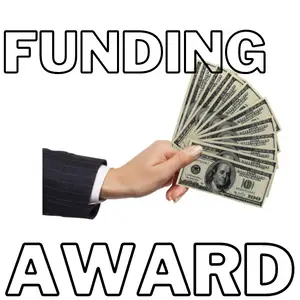Securing funding for your faith-based initiative can be one of the most challenging aspects of running a church or religious organization. Government church grants provide a vital source of support, especially for churches that aim to expand their community services, outreach programs, or education initiatives.
In this guide, we will take you through everything you need to know about Government Church Grants, the various options available, and how to successfully apply for them. Whether you’re just starting out or looking to grow your existing programs, we’ve got you covered!
Understanding Government Church Grants
When we talk about government church grants, we are referring to financial support provided by local, state, and federal government agencies to faith-based organizations, including churches.
These grants are typically awarded to churches that are engaged in specific activities such as community service, educational programs, health initiatives, housing projects, and disaster relief efforts.
While religious activities per se are generally not eligible for government grants due to the separation of church and state, many faith-based initiatives that focus on social services or public benefits can qualify for funding.
This financial support plays an integral role in helping churches extend their outreach and make a greater impact on their communities. By aligning their projects with community needs—such as food security, job training, and mental health support—churches can access crucial funding while fulfilling their missions.
Why Government Church Grants are Important
Churches often play a pivotal role in their communities. They provide essential services such as:
- Homelessness support
- Food banks
- Youth programs
- Substance abuse counseling
- Job training programs
- Senior citizen services
Government church grants can help these organizations expand and better serve their communities. With the growing need for social services, especially in underserved areas, churches are often uniquely positioned to meet these demands.
Did you know?
According to the National Council of Churches, faith-based organizations are responsible for delivering 25% of the nation’s social services. This underscores the importance of funding to ensure these services continue to flourish. By securing government grants, churches can support and enhance their existing programs, making them more effective and far-reaching.
However, the competition for grants is fierce, so it’s important to understand the requirements, eligibility criteria, and application processes to stand out among applicants.
Types of Government Grants for Churches
There are a variety of government grants available for churches, and these grants can come from different levels of government. Let’s break them down:
1. Federal Grants for Churches
The U.S. federal government offers a range of grants that churches can apply for, especially for programs that serve the public good. These federal church grants are typically focused on programs such as youth education, housing, health initiatives, and disaster recovery. Notable programs include:
- The Department of Health and Human Services (HHS): HHS provides grants for programs that offer social services, including those related to health, mental health, and housing. For example, the Community Services Block Grant (CSBG) provides funding to local organizations, including churches, to alleviate poverty and improve community wellbeing.
- The Department of Housing and Urban Development (HUD): HUD funds affordable housing programs that churches may apply for if they are involved in housing initiatives, such as providing shelter for the homeless or offering transitional housing. According to HUD statistics, in 2022 alone, over $12 billion was allocated for housing and community development grants that can be utilized by faith-based organizations.
- The Department of Justice (DOJ): The DOJ offers funding for programs that work to prevent and reduce crime. Faith-based organizations that focus on crime prevention, rehabilitation, or youth outreach may be eligible for these grants. For instance, the Project Safe Neighborhoods program involves community organizations, including churches, in efforts to curb gun violence and gang activity.
By focusing on community-oriented projects, churches become strong candidates for these and other federal grant opportunities. For the latest information on federal grants, visit Grants.gov.
2. State Grants for Churches
State governments often have their own grant programs that can be applied for by churches in specific states. These state grants may be aimed at initiatives related to public health, education, homelessness, and more. The eligibility requirements and amounts vary greatly depending on the state.
- Example: Some states offer funding for youth mentoring programs. Churches that run after-school or mentoring programs can apply for these state grants to expand their services. For example, in California, the Governor’s Office of Emergency Services (Cal OES) sometimes releases grants for community resilience and disaster preparedness, which can often be directed to churches for community outreach programs.
Many state agencies maintain online portals where you can search for available grants. Statistics from state-level funding often show yearly increases in funding for social services, reflecting the government’s recognition of the important role that churches play in social infrastructure.
3. Local Government Grants
Local governments, such as city or county governments, offer smaller grants to churches for community services like feeding the hungry, hosting community events, and providing emergency relief.
- Example: Many local governments have funding for disaster relief programs. Churches that are actively involved in disaster recovery efforts can apply for these grants to help their communities rebuild. One example is how churches in areas affected by hurricanes have historically received funding through FEMA’s disaster relief programs to provide shelter, food, and emotional support to displaced families.
These smaller, community-focused grants often have simpler application processes and can be a great way for churches to get started with government funding. They also help build a track record of successful projects, which is beneficial when applying for larger grants.
How to Qualify for Government Church Grants
While each government grant has its own set of eligibility criteria, there are some common requirements you should expect when applying for church grants:
- 501(c)(3) Tax-Exempt Status: Most government grants require that the church or faith-based organization be a recognized 501(c)(3) nonprofit entity. This status allows you to receive tax-exempt donations and apply for federal funding. If your church does not yet have this status, it’s essential to apply for tax-exempt recognition with the IRS.
- Public Benefit Focus: The grant must be used for activities that provide a public benefit. Churches that provide services such as food distribution, housing, youth education, and disaster relief are most likely to qualify. Your application should emphasize how your programs benefit the community and align with public service goals.
- Track Record of Service: Many grant programs look for organizations with a proven track record of successful community involvement. Churches that can demonstrate their impact on the community have a higher chance of securing government funding. Including letters of support from community members, statistical evidence of impact, and testimonials can help strengthen your application.
- Financial Accountability: Churches must maintain accurate and transparent financial records. Government agencies want to ensure that grant funds are managed responsibly. Audited financial statements, budgets, and detailed financial reports should be readily available to support your application.
Additionally, some grants may require specific programmatic evidence, such as data on the population served or outcomes achieved in previous projects. Being prepared with this information can greatly enhance your credibility.
Steps to Apply for Government Church Grants
Applying for a government church grant can seem daunting, but following the right steps can simplify the process. Here’s how to get started:
1. Research Available Grants
The first step is identifying the right grant for your church’s needs. Some excellent resources for researching government church grants include:
- Grants.gov: This is the primary resource for federal grants. You can search for available grants, check eligibility requirements, and submit your application through this website. It also offers newsletters and alerts for new grant opportunities, which can keep you informed of relevant funding sources.
- State and Local Grant Websites: Don’t forget to check with your state and local government websites for additional grant opportunities. Many state departments have dedicated sections for grants and funding, often broken down by sector, making it easier to identify opportunities for community services.
- Nonprofit Networks and Foundations: Many nonprofit organizations offer grant databases and resources to help you find the right funding opportunities. Networks like the National Council of Nonprofits or Church World Service can be invaluable for finding leads on grants and learning best practices for applying.
2. Prepare Your Application
Once you’ve identified the right grant, you’ll need to gather the required information, which typically includes:
- A detailed description of your project
- A budget outlining how the funds will be used
- Information about your church’s history and mission
- A list of board members or key personnel
- Proof of 501(c)(3) status
- Financial records
Gathering this information in advance will help create a smoother application process. It may also be beneficial to develop a template that you can adapt for different grants, saving time and ensuring consistency in your submissions.
3. Write a Strong Proposal
The proposal is the heart of your application. A strong proposal should clearly articulate:
- The need for the project: Why is the project important for your community? Use local data and anecdotes to paint a picture of the challenges your community faces. For example, if applying for a housing grant, include statistics on local homelessness rates or housing shortages.
- Your goals and objectives: What are you aiming to achieve with the grant? Define clear, measurable outcomes. Instead of saying “we want to help the homeless,” specify that “we aim to provide shelter to 100 homeless individuals within 12 months.”
- The project plan: How will you implement the project, and what are the expected outcomes? Break down the steps, timeline, and resources needed. Including a Gantt chart or timeline can help visualize the process.
- Your sustainability plan: How will you sustain the project after the grant funding ends? This might include plans for fundraising, partnerships, or generating income through program services. Demonstrating long-term viability can set your application apart.
A study by the Grant Professionals Association found that proposals with clear objectives and detailed action plans are 25% more likely to be funded. Therefore, investing time in crafting a thorough proposal can pay off significantly.
4. Submit Your Application
Once your application is complete, submit it through the appropriate portal. Be sure to follow the submission guidelines carefully and meet all deadlines. Double-check that all attachments, signatures, and sections are completed as required. If possible, submit your application a few days before the deadline to avoid last-minute technical issues or unforeseen delays.
Key Tips for Writing a Successful Grant Proposal
- Be Clear and Concise: Keep your proposal simple and easy to understand. Avoid jargon and focus on explaining the problem and how your project will address it. Government agencies review hundreds of proposals, so clarity can set yours apart.
- Show Impact: Use data and statistics to support your claims. For instance, if you are expanding a food bank program, include numbers such as “In the past year, we distributed over 50,000 meals to families in need.” Real, tangible outcomes resonate with reviewers. Pew Research Center and other reputable sources often provide data that can lend credibility to your application.
- Align with the Grantor’s Mission: Ensure that your project aligns with the goals and priorities of the grantor. Read the grant’s description thoroughly and tailor your proposal accordingly. If the grant focuses on health initiatives, emphasize how your church’s health services or counseling programs will benefit the community.
- Demonstrate Sustainability: Government agencies want to know how your project will continue after the grant funding ends. Include plans for future funding, community partnerships, volunteer support, or revenue-generating activities that ensure the longevity of your programs.
- Proofread and Edit: Errors or unclear language can detract from the professionalism of your proposal. Having someone else review your application can provide fresh perspective and catch mistakes you might have missed.
Common Mistakes to Avoid When Applying for Government Church Grants
While the process may seem straightforward, there are several common mistakes that churches make when applying for government church grants:
- Not Following Instructions: Each grant application will have specific instructions, including document formats and submission procedures. Failing to follow these can result in your application being disqualified. Always create a checklist of requirements to ensure nothing is overlooked.
- Overestimating or Underestimating the Budget: Ensure that your budget is realistic and detailed. Overestimating or underestimating costs can raise red flags for grant reviewers. Include quotes or estimates from vendors where possible, and provide rationale for each budget item.
- Lack of Evaluation Plan: Be sure to include a clear plan for evaluating the success of your project. This might include surveys, focus groups, or specific metrics. An evaluation plan shows that you are serious about measuring your impact and continuously improving your services.
- Missing Deadlines: Late applications are almost always rejected. Be mindful of the submission deadlines and submit your proposal well in advance. Setting internal deadlines can help keep your team on track.
- Ignoring Past Feedback: If you have applied for grants before and received feedback, make sure to review this advice before submitting new proposals. Incorporate lessons learned to improve your application’s quality.
The Role of Data and Sources in Strengthening Your Application
Including data and credible sources in your grant application can significantly strengthen your case. For example:
- Community Need Assessment: Include statistics on unemployment, poverty rates, or health issues specific to your community. Sources like the U.S. Census Bureau, Department of Health, or local government reports can be referenced.
- Impact Metrics: If your church has previously implemented programs, share outcomes with figures. For instance, “Our job training program has helped 200 individuals secure employment within the past year,” supported by testimonials or follow-up surveys.
- External Studies and Reports: Cite studies from reputable institutions that demonstrate the effectiveness of community-based interventions similar to your project. This shows that your approach is evidence-based.
Using hyperlinks to these sources where possible can add credibility. For example:
Real-Life Success Stories
Consider the story of a local church in Ohio that secured a federal grant through HUD to start a transitional housing program for veterans. The project was detailed in their proposal with a clear plan to renovate an existing property, providing safe housing and job training services.
After securing the grant, the church was able to house over 50 veterans, helping them transition back into the community with dignity and support.
Their success was not only measured in providing shelter but also in the long-term decrease in homelessness among veterans in their area. Such stories underscore the tangible impact of government church grants when applied and managed effectively.
Additional Resources and Support
a) Expand Your Knowledge
The grant writing field is always evolving. Keep learning and improving your skills to stay competitive.
Recommended Resources:
- Request for Proposal Success: How to Write Proposals That Win: Learn the techniques and strategies to create standout proposals.
- Tech Startup Funding Secrets: Navigating Grants for Maximum Growth: Perfect for those in the tech sector looking to leverage grants for scaling.
- Grant Proposal Guide for Environmental Projects: Tailored for environmental initiatives seeking to secure impactful funding.
- The Ultimate Guide to Federal Grant Applications: Techniques for Success: Master the complexities of federal grants with actionable insights.
Explore More Books Here
b) Invest in Expert Guidance
Join one of our mentorship programs for tailored advice and support:
Mentorship Programs:
- 3-Month Mentorship: The Foundation Builder: A short-term plan to refine your grant writing skills and win your first (or next) grant.
- 6-Month Mentorship: The Proposal Pro: Dive deeper into strategies, proposal reviews, and funding plans.
- 1-Year Mentorship: The Funding Champion: Build long-term success with comprehensive guidance, unlimited reviews, and exclusive resources.
C) Book a One-on-One Consultation
Sometimes you just need personalized advice to tackle challenges or fine-tune your strategy. Let’s work together to solve your unique grant writing challenges.
Book a Consultation Call Here
Conclusion
Government church grants offer an invaluable opportunity for churches to expand their outreach and make a positive impact on their communities. By understanding the types of grants available, following the right application steps, leveraging data, and avoiding common mistakes, your church can increase its chances of securing much-needed funding.
Remember: Persistence and continuous learning are key. Each application process teaches you something new and brings you closer to success.
Ready to dive deeper into the world of grant writing and improve your chances of success?
Subscribe to the Grant Writing Academy Newsletter for access to expert tips, strategies, templates, and tools to boost your grant writing skills and enhance your success rates.
The newsletter is a treasure trove of resources designed to guide you through every step of the grant writing process. Whether you’re looking for insight into writing compelling proposals, managing budgets, or organizing community support, our newsletter has got you covered.
Subscribe Today and join a community of like-minded individuals dedicated to making a difference through effective grant writing.
Take the next step toward transforming your church’s initiatives and creating lasting change in your community with expert guidance and invaluable resources.
Start your journey today and subscribe for the best resources in the grant writing world.
Sources and further reading:




